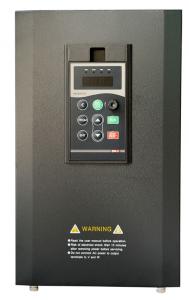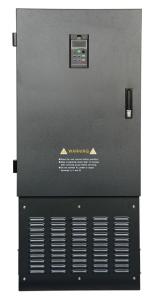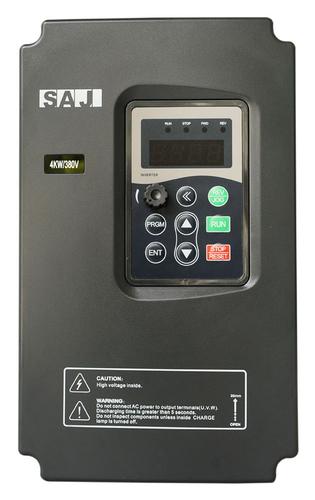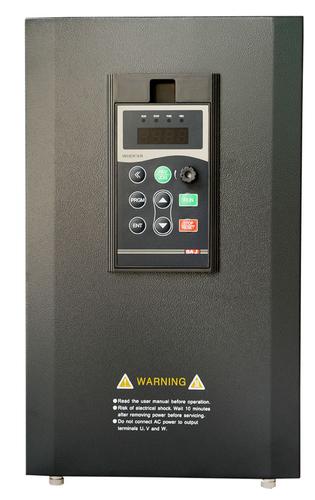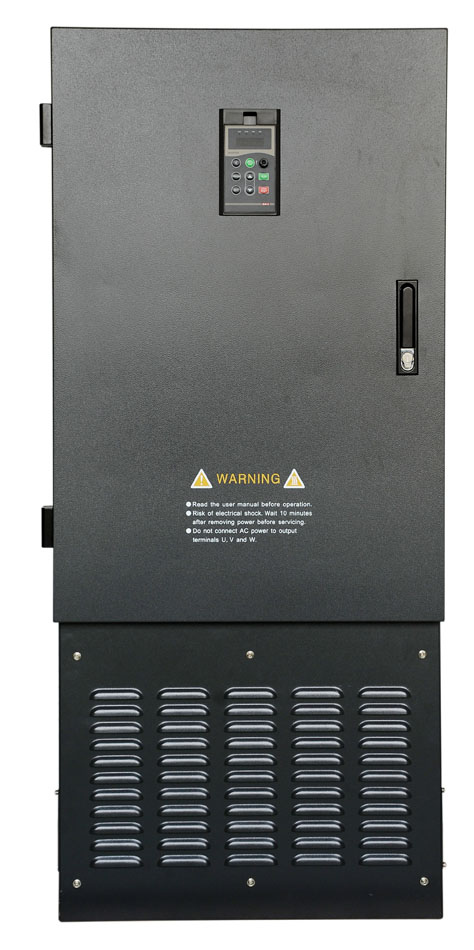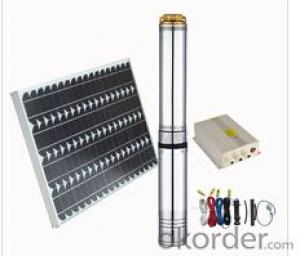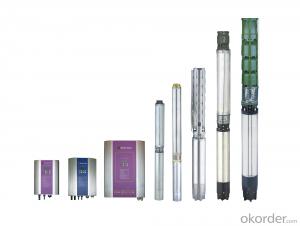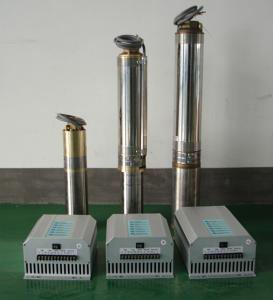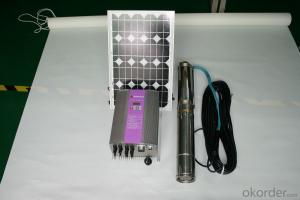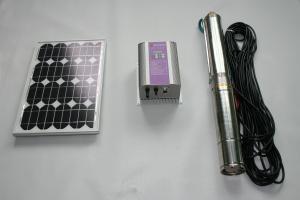Se1 Solar Pump Controller Suitable for Different Areas
- Loading Port:
- Guangzhou
- Payment Terms:
- TT OR LC
- Min Order Qty:
- 1 watt
- Supply Capability:
- 1000 watt/month
OKorder Service Pledge
OKorder Financial Service
You Might Also Like
Advantages of SAJ solar pumping system
■ The system can carry out independent power supply and solve the water problem in off-grid regions.
■ MPPT function of solar inverter is excellent in tracing the maximum power point with high reliability and quick response.
■ The system is environmentally friendly without storage battery.
■ Intelligent IGBT modules of high performance inside can make the conversion efficiency up to 98% and above.
■ Users can select the function of water-level detecting to prevent the system from overflow and dry extraction.
Applications:
Barren Mountain Water Supply, Environment Improvement, Meadow Water Supply, Reducing Water Loss, Life Water Supply and so on.
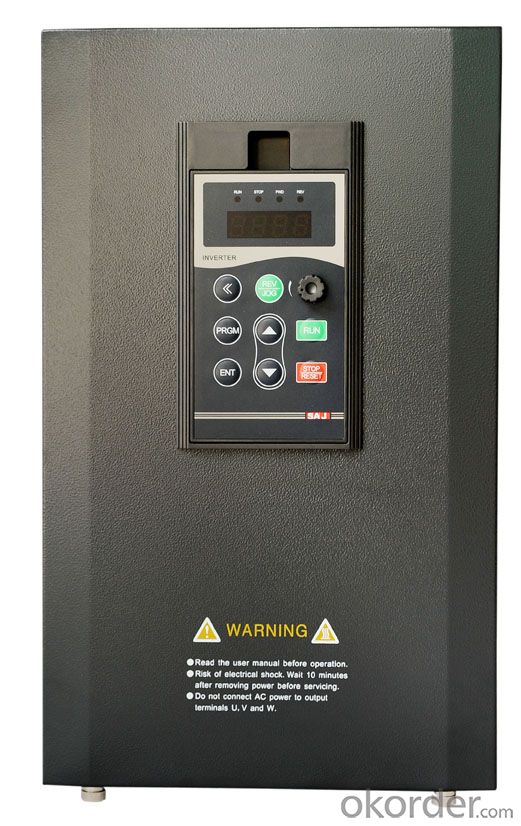
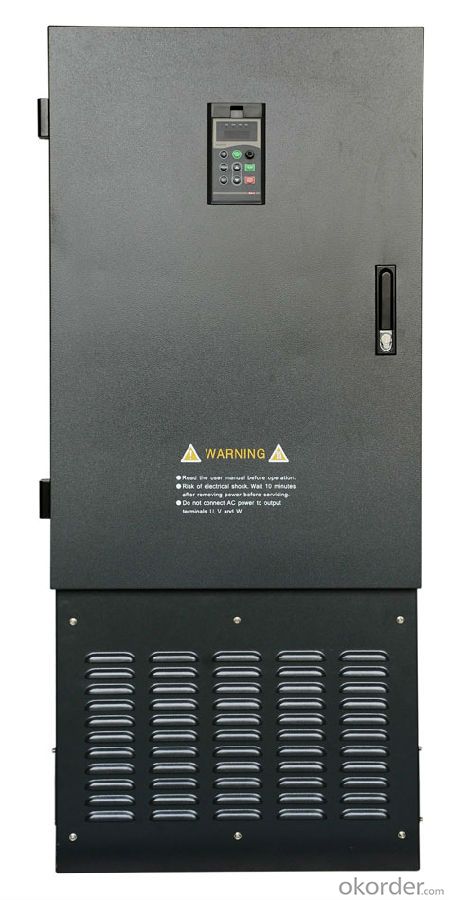
FAQ
1. How long will my inquiry get response?
Your inquiry related to our products or prices will be replied within 24 hours.
2. Can I get professional service and suggestion?
Well-trained and experienced staffs to answer all your questions in fluent English.
3. Do you accept OEM or customized design?
OEM & ODM, any your customized lightings we can help you to design and put into product.
4. What if I need specific design?
Distributorship are offered for your unique design and some our current models.
- Q: What is a solar pump?
- A solar pump is a device that uses solar energy to power a water pump, typically used for irrigation, livestock watering, or domestic water supply in areas without access to electricity. It consists of solar panels that convert sunlight into electrical energy, which is then used to operate the pump and move water from a source to a desired location.
- Q: What is the lifespan of solar panels used in solar pumps?
- The lifespan of solar panels used in solar pumps can vary, but on average, they are designed to last for around 25 to 30 years.
- Q: How does a solar pump help in reducing noise pollution?
- A solar pump helps in reducing noise pollution by eliminating the need for traditional fuel-powered pumps, which are typically noisy. As solar pumps operate solely on solar energy, they do not produce any noise during their operation. This significantly reduces the overall noise levels in the vicinity and contributes to a quieter and more peaceful environment.
- Q: Can a solar pump be used for water supply in military camps or bases?
- Yes, a solar pump can be used for water supply in military camps or bases. Solar pumps are an excellent alternative to traditional pumps that rely on electricity or fuel, as they are powered by the sun's energy. This makes them ideal for remote locations such as military camps or bases, where access to electricity or fuel may be limited or unreliable. Solar pumps work by converting sunlight into electrical energy, which is then used to power the pump and draw water from a water source such as a well or reservoir. They are easy to install, require minimal maintenance, and have a long lifespan, making them highly suitable for military operations. Using a solar pump for water supply in military camps or bases offers several advantages. Firstly, it reduces the dependence on external sources of energy, which can be critical in situations where supply lines are compromised or unreliable. Secondly, solar pumps are environmentally friendly, as they do not produce any greenhouse gas emissions or contribute to air pollution. This aligns with the military's increasing focus on sustainability and renewable energy. Furthermore, solar pumps can be designed to operate even in harsh conditions, such as extreme temperatures or dusty environments, ensuring their durability and reliability in military settings. They can also be equipped with storage tanks to provide a continuous water supply, even during periods of low sunlight or at night. In summary, a solar pump can be an effective and efficient solution for water supply in military camps or bases. Its reliance on renewable energy, ease of installation, low maintenance requirements, and ability to operate in various conditions make it a practical choice for meeting water needs in military operations.
- Q: What are the maintenance requirements for a solar pump?
- The maintenance requirements for a solar pump are relatively low compared to traditional pumps. However, it is essential to perform regular checks and maintenance tasks to ensure optimal performance and longevity of the system. One of the primary maintenance requirements is keeping the solar panels clean and free of debris. Accumulated dust, dirt, or other obstructions can reduce the efficiency of the panels and therefore decrease the pump's output. Regularly inspecting and cleaning the solar panels, especially in dusty or windy areas, is crucial to maximize energy generation. Additionally, it is important to inspect and clean the pump and its components periodically. This includes checking for any leaks, loose connections, or signs of wear. Ensuring that all components are in good condition helps prevent potential malfunctions or breakdowns. Monitoring the water source and checking for any blockages or contaminants is another maintenance requirement. Depending on the water quality, filters or strainers may need to be cleaned or replaced regularly to prevent clogging and maintain a steady flow of water. Furthermore, keeping an eye on the battery system is vital for off-grid solar pump systems. Checking the battery voltage, electrolyte levels (for lead-acid batteries), and ensuring proper charging are necessary to ensure the longevity and reliability of the battery system. Regularly inspecting the mounting structures, wiring, and electrical connections is also crucial. These components should be secure and free from any damage or corrosion to maintain a safe and efficient system. Lastly, it is recommended to have a professional technician or installer conduct an annual maintenance check to ensure all components are functioning correctly and to address any potential issues. They can perform more in-depth inspections, conduct tests, and provide any necessary repairs or replacements. By following these maintenance requirements, a solar pump can continue to operate efficiently and reliably for many years, offering a sustainable and cost-effective solution for water pumping.
- Q: What are the different applications of solar pumps?
- Solar pumps have a wide range of applications across various sectors. Some of the different applications of solar pumps include: 1. Agriculture: Solar pumps are extensively used in agricultural fields for irrigation purposes. They can efficiently transport water from wells, rivers, or other water sources to irrigate crops, ensuring a consistent water supply for farming activities. 2. Livestock watering: Solar pumps are ideal for providing water to livestock in remote areas where access to electricity may be limited. They can be used to pump water from wells or reservoirs to troughs, ensuring animals have a constant supply of fresh water. 3. Drinking water supply: In rural or off-grid communities without access to reliable electricity, solar pumps can be used to provide clean drinking water. They can pump water from underground sources or rivers and transport it to a storage tank, where it can be treated and distributed to households. 4. Fountain and decorative displays: Solar pumps are commonly employed to power fountains and decorative water displays in gardens, parks, or public spaces. These pumps harness sunlight to circulate water, creating beautiful and environmentally-friendly water features. 5. Water circulation and aeration: Solar pumps can be used to circulate water in ponds, lakes, or reservoirs, enhancing water quality and preventing stagnation. They can also be employed for aeration purposes, promoting the growth of healthy aquatic life. 6. Drip irrigation systems: Solar pumps are suitable for drip irrigation systems, which deliver water directly to the base of plants, minimizing water wastage. These systems are particularly useful in arid or water-scarce regions, where every drop of water is valuable. 7. Swimming pool filtration: Solar pumps can be utilized to power the filtration systems of swimming pools. They can efficiently circulate water through filters, removing debris and maintaining water clarity, all while reducing energy consumption. 8. Water supply for remote locations: Solar pumps are commonly used to provide water supply in remote locations, such as mountainous areas or islands, where connecting to the main power grid is challenging. They offer an independent and sustainable solution for accessing water in these isolated regions. In conclusion, solar pumps have a diverse range of applications, from agricultural irrigation and livestock watering to providing clean drinking water and powering decorative displays. Their versatility and ability to operate off-grid make them an excellent choice for various water pumping needs.
- Q: Can a solar pump be used in both residential and commercial applications?
- Yes, a solar pump can be used in both residential and commercial applications. Solar pumps are versatile and can be used to pump water for a variety of purposes such as irrigation, water supply, and wastewater management in both residential and commercial settings. They are an efficient and cost-effective solution for pumping needs in both sectors, utilizing renewable energy from the sun.
- Q: How does a solar pump handle water with high levels of organic matter?
- A solar pump can handle water with high levels of organic matter by using a filtration system. The pump pushes water through filters that can remove or reduce organic matter, ensuring that the water remains clean and suitable for various applications.
- Q: Can a solar pump be used for residential water supply?
- Yes, a solar pump can be used for residential water supply. It is an efficient and eco-friendly option that utilizes solar energy to power the pump, providing a reliable and cost-effective solution for accessing water in residential areas.
- Q: Can a solar pump be connected to a battery for backup power?
- Indeed, it is possible to connect a battery to a solar pump for backup power. By employing this arrangement, the solar pump can continue functioning even in the absence of sunlight or under dim lighting circumstances. Throughout the day, the solar panels replenish the battery's charge, thus storing surplus energy to be utilized by the pump when necessary. This guarantees an uninterrupted water supply, even during overcast weather or throughout the night. Furthermore, connecting the solar pump to a battery for backup power not only ensures stability but also safeguards the pump against potential harm caused by fluctuations in solar energy availability.
Send your message to us
Se1 Solar Pump Controller Suitable for Different Areas
- Loading Port:
- Guangzhou
- Payment Terms:
- TT OR LC
- Min Order Qty:
- 1 watt
- Supply Capability:
- 1000 watt/month
OKorder Service Pledge
OKorder Financial Service
Similar products
Hot products
Hot Searches
Related keywords

